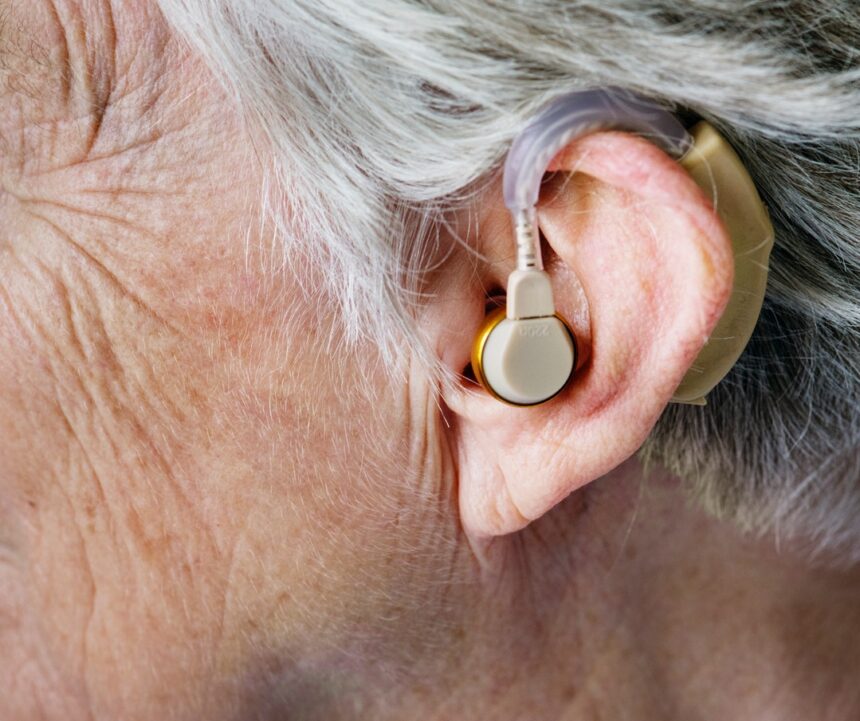As people age, their bodies undergo many changes; one of the most common issues is hearing loss. This can happen for several reasons, including family history, loud noise exposure, or health issues. Many older adults struggle with hearing, making it difficult to communicate, stay safe, and enjoy life.
By learning about these hearing problems, we can improve life for seniors. Let’s dive in!
Causes of Hearing Challenges in Seniors
There are several reasons why older adults may have trouble hearing. The most common cause is age-related hearing loss, called presbycusis.
This type of hearing loss typically occurs gradually over time and can begin as early as age 50. In addition to aging, several factors can exacerbate hearing problems, including:
Noise Exposure
Extended exposure to loud sounds can damage your ears. Without proper ear protection, the tiny hair cells inside the ear can get damaged. Once these cells are damaged, hearing loss may become permanent.
Health Conditions
Certain health problems can also impact your hearing ability. Conditions such as diabetes, heart disease, and otosclerosis can harm the ear’s structures or affect blood circulation. This can make it harder to hear clearly over time.
Medications
Certain medications can adversely affect your hearing. These are known as ototoxic drugs, and they can damage the inner ear. If taken over extended periods, they may lead to temporary or even permanent hearing loss.
Symptoms and Effects of Hearing Loss
Recognizing the symptoms associated with hearing loss is essential. Seniors may experience a variety of symptoms, ranging from difficulty hearing conversations, particularly in noisy environments, to a sensation of fullness in the ear. Some common signs include:
- Asking others to repeat
- Difficulty following spoken conversations
- Turning up the volume
Such problems can lead seniors to feel isolated and dissatisfied, as communicating with family and friends becomes more challenging. Poor hearing can also increase the likelihood of accidents. Seniors may fail to hear essential sounds, such as alarms or oncoming vehicles.
Solutions for Hearing Challenges
Addressing hearing challenges necessitates a multifaceted approach. Regular hearing assessments, typically recommended annually for seniors, can aid in the early detection of issues.
Promoting hearing health in seniors through these check-ups and timely interventions is key to maintaining quality of life. If hearing loss is diagnosed, potential solutions may include:
Hearing Aids
Hearing aids are devices designed to amplify sound. They can assist individuals in hearing more clearly in daily situations. This generally enhances communication and aids seniors in staying connected with others.
Cochlear Implants
For individuals with severe hearing loss, cochlear implants may be a viable option. These implants function by transmitting sound directly to the auditory nerve. They can help people hear sounds they wouldn’t with regular hearing aids.
Communication Strategies
Educating family members on effective communication can significantly impact. Simple tips include speaking slowly and clearly, looking at the person while talking, and cutting down background noise. These strategies help minimize misunderstandings and facilitate smoother conversations.
Enhancing Quality of Life
Ultimately, assisting seniors with hearing difficulties enhances their quality of life. When they communicate effectively, they maintain greater independence and safety. Regular hearing check-ups and utilizing hearing aids or other devices can be immensely beneficial.
By understanding and addressing hearing loss, we foster a more compassionate and inclusive environment for seniors. Families and caregivers should actively engage in supporting seniors’ hearing health. Do not hesitate to consult audiologists or health experts for advice and assistance.
Is this article helpful? Keep reading our blog for more.














